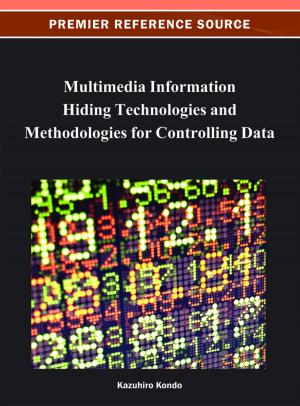Quantitative Semantics and Soft Computing Methods for the Web
Perspectives and Applications
Nonfiction, Computers, General Computing, Programming, Internet| Author: | Ramon F. Brena, Adolfo Guzman-Arenas | ISBN: | 9781466605398 |
| Publisher: | IGI Global | Publication: | October 31, 2011 |
| Imprint: | Information Science Reference | Language: | English |
| Author: | Ramon F. Brena, Adolfo Guzman-Arenas |
| ISBN: | 9781466605398 |
| Publisher: | IGI Global |
| Publication: | October 31, 2011 |
| Imprint: | Information Science Reference |
| Language: | English |
The Internet has been acknowledged as a recent technological revolution, due to its significant impact on society as a whole. Nevertheless, precisely due to its impact, limitations of the current Internet are becoming apparent; in particular, its inability to automatically take into account the meaning of online documents. Some proposals for taking meaning into account began to appear, mainly the so-called Semantic Web, which includes a set of technologies like RDF that are based on new markup languages. Though these technologies could be technically sound, practical limitations, such as the high training level required to construct Semantic Web pages, and the small proportion of current Semantic Web pages make the Sematic Web marginal today and also in the near foreseeable future. Quantitative Semantics and Soft Computing Methods for the Web: Perspectives and Applications will provide relevant theoretical frameworks and the latest empirical research findings related to quantitative, soft-computing and approximate methods for dealing with Internet semantics. The target audience of this book is composed of professionals and researchers working in the fields of information and knowledge related technologies (e.g. Information sciences and technology, computer science, Web science, and artificial intelligence).
The Internet has been acknowledged as a recent technological revolution, due to its significant impact on society as a whole. Nevertheless, precisely due to its impact, limitations of the current Internet are becoming apparent; in particular, its inability to automatically take into account the meaning of online documents. Some proposals for taking meaning into account began to appear, mainly the so-called Semantic Web, which includes a set of technologies like RDF that are based on new markup languages. Though these technologies could be technically sound, practical limitations, such as the high training level required to construct Semantic Web pages, and the small proportion of current Semantic Web pages make the Sematic Web marginal today and also in the near foreseeable future. Quantitative Semantics and Soft Computing Methods for the Web: Perspectives and Applications will provide relevant theoretical frameworks and the latest empirical research findings related to quantitative, soft-computing and approximate methods for dealing with Internet semantics. The target audience of this book is composed of professionals and researchers working in the fields of information and knowledge related technologies (e.g. Information sciences and technology, computer science, Web science, and artificial intelligence).















